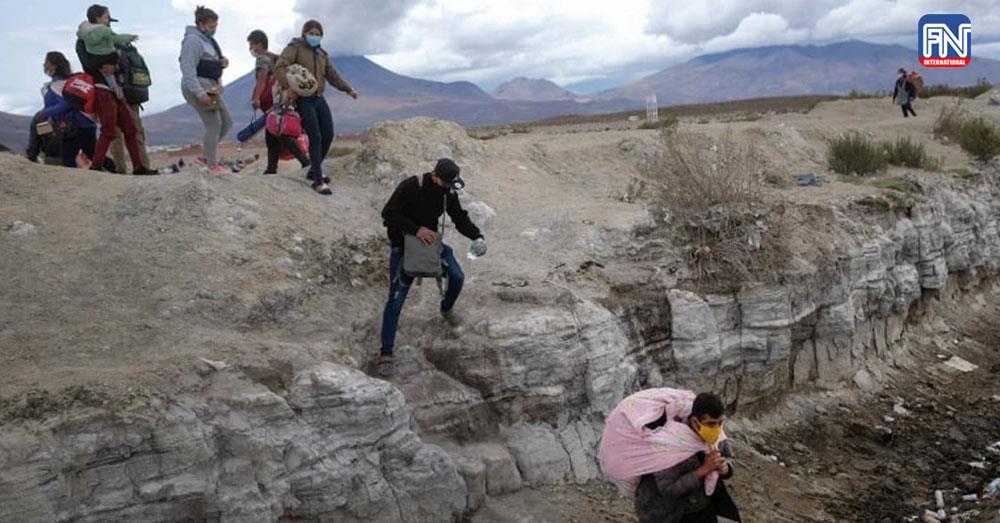CARACAS, Aug 31 (Aljazeera) - About 6.8 million Venezuelans have left their homeland since an economic crisis took hold in earnest in 2014 for the country of some 28 million people. Most have gone to nearby nations in Latin America and the Caribbean. More than 2.4 million are in Colombia.
That huge migration slowed as the pandemic cut economic opportunities and complicated travel across the region and as Venezuela’s socialist government adopted reforms that slowed the country’s economic free-fall and gave some appearance of revival.
Approximately 150,000 Venezuelans returned to their homeland at the height of the coronavirus pandemic, according to United Nations estimates, and some host countries reported a decline in the overall count of Venezuelan immigrants for the first time in years.
But the outward march is on the rise again.
At least 753,000 Venezuelans have left their country for another in Latin America or the Caribbean since November, according to data from receiving countries, even as the government of President Nicolas Maduro has continued to tout economic growth. Colombia, which had not reported updated figures since November, posted a jump of roughly 635,000 between that month and August.
Pandemic lockdowns and border closures also have pushed Venezuelans to riskier paths. Mexico recently imposed a visa requirement for Venezuelans, so instead of flying to a country bordering the US, Venezuelan migrants now often trek northward across Central America after crossing the Darien Gap, a roadless jungle straddling the Colombia-Panama border where thieves, swollen rivers, rough terrain and wild animals are common.
Panama’s government said 45,000 Venezuelans had entered its territory that way so far this year, up from only 3,000 last year.
The lack of diplomatic ties between the US and Venezuela has meant that the US has been unable to expel Venezuelans under a pandemic-era rule on the US-Mexico border. The US has allowed some Venezuelans to apply for asylum, and in July, the administration of US President Joe Biden extended Temporary Protection Status for Venezuelans in the US since before March 8, 2021, shielding some 343,000 people from deportation for an additional 18 months.
Still, the future for Venezuelan asylum seekers in the US is fraught amid pressure from Republican officials who have seized on the growing number of migrants arriving at the border to assail Biden’s policies on migration and border security.
Arbelys Briceno was on her eighth day on a journey from her Venezuelan hometown to Peru, a country the 14-year-old could not place on a map but that her older brother had set as their destination. Mosquitoes had marked her legs. The sun had baked her face.
“It is as if it were a vacation but with lots of walking,” Arbelys said with an outlook far more upbeat than that of most Venezuelan migrants trying to escape poverty in their once-prosperous country.


